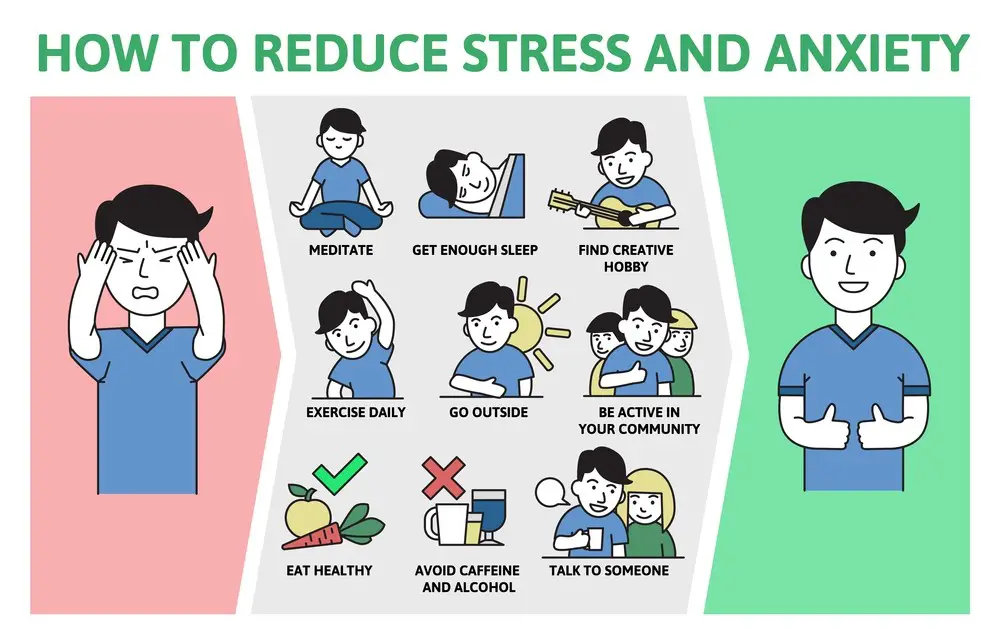Recognizing early signs of mental health issues is crucial. We’ve gathered five insightful professional responses, including a Mental Health Counselor to shed light on this. From listening to observations from loved ones to acknowledging the psychological impacts of accidents, this article provides valuable perspectives on when to consider seeking mental health support.
- Listen to Observations From Loved Ones
- Notice Shifts in Emotional Responses
- Heed Your Heart’s Plea for Solace
- Recognize the Physical Symptoms of Stress
- Understand the Complexity of Mental Health Symptoms
- Acknowledge the Psychological Impacts of Accidents

1. Listen to Observations from Loved Ones
One early sign that someone may consider seeking mental health support would be a family member or close friend noticing that you haven’t been “yourself” lately.
Any change in your day-to-day functioning, whether it’s more tiredness, a change in appetite, a change in hygiene routines, avoiding social situations, or being unable to go to work, can indicate a mental health issue.
Sometimes, our family and friends will notice these changes before we do. It’s essential to listen to the people in your life and use their support and encouragement to help you move forward toward seeking help.
It can be intimidating initially, but with the right mental health professional, you will feel comfortable and encouraged on your mental health journey.
Kyla Salmond, Mental Health Counselor
2. Notice Shifts in Emotional Responses
In my experience, a subtle yet telling early sign is a noticeable shift in someone’s emotional responses, indicating that they struggle to process deeper underlying issues. For example, they might start reacting to everyday situations with heightened emotions, whether it’s increased irritability, sadness, or overwhelming joy.
When these emotional shifts become too intense and persistent, seeking professional support can be crucial in addressing and navigating these challenges effectively.
Bayu Prihandito, Certified Psychology Expert, Life Coach, and Founder, Life Architekture
3. Heed Your Heart’s Plea for Solace
If you find yourself feeling overwhelmed, like a stormy sea in your chest, it’s a sign. When the world’s weight feels too heavy, joy feels distant, and laughter a memory, it’s a sign.
When sleep becomes elusive or a constant companion, when worries weave a tapestry in your mind, it’s a sign. When you lose interest in things that once lit your soul ablaze, it’s a sign. When tears flow like a river, unbidden and uncontrollable, it’s a sign. When the darkness lingers, refusing to yield to the dawn, it’s a sign.
Listen to these whispers from within. They are your heart’s plea for solace, a call for gentleness. Seeking help is not a sign of weakness; it’s a courageous step toward healing. Reach out to those who can offer the light you need.
You deserve the warmth of understanding hearts, the guidance of compassionate hands, and the tools to rebuild your spirit. You are not alone, and your pain is seen. It’s time to let the healing begin.
Brinda Chaniyara, Content Writer, The Mom N Baby

4. Recognize the Physical Symptoms of Stress
It is easy to ignore the signs needing to address your mental health, but they will be there. You will feel stressed anxious, and experience fatigue and sleep changes. Some other experiences are appetite changes, sadness, hopelessness, and emptiness.
You will even experience heart rate changes and feel as though the stress is overwhelming. When you notice this happening, you need to take action. If you don’t treat it, it might get worse for you.
You can try actionable ways to improve your mental health, like practicing mindfulness activities and exercises. Connect with others, and if these tips are not helping, seek help from a medical practitioner.
John Mclean, CEO and Counsellor, Rehab Guide

5. Understand the Complexity of Mental Health Symptoms
While insomnia can indeed be a common symptom associated with mental health issues such as anxiety, depression, and bipolar disorder, it’s essential to understand that it may not always be the first sign or the only symptom.
Mental health conditions are complex and can manifest in various ways, with symptoms often varying from person to person.
Nabil Salib, Urgent Care Specialist, MyDoc Urgent Care

Putting Expert Wisdom into Action: Your Personal Roadmap
Okay, so you’ve got all this expert wisdom—now what? Implementing their advice is the next crucial step to improving your mental well-being.
- Be Your Own Advocate: Don’t brush it off if loved ones point out changes. They see you from an angle you can’t, and their perspective can be invaluable.
- Emotion Tracking: Keep a simple journal of your emotional state throughout the day. Look for patterns; if high emotional volatility persists, that’s your signal to seek help.
- Mindfulness Moments: Practice mindfulness to monitor stress and heart rate changes. There are several apps available that can guide you through quick 5-minute exercises.
- Community & Connection: Don’t isolate yourself. Confide in someone you trust or join a support group. Sometimes, talking it out is the best medicine.
- Professional Help: If symptoms persist or worsen, don’t hesitate. Medical advice is just a call away. Book that appointment.
Unpacking the Signals: Our Take on Navigating the Mental Health Maze
Understanding the landscape of your mental health isn’t always straightforward. But, from our deep dive into the complexities of mental well-being, here are some additional tips that may help:
- Listen to Your Body: Often, our physical state provides clues to our mental state. Are you suddenly experiencing headaches or digestive issues? These might be signs of mental distress.
- Set Healthy Boundaries: If your emotional state fluctuates more than usual, examine your relationships and workload. It might be time to set new boundaries.
- Pulse Check on Sleep: Are you sleeping too much or too little? Irregular sleep can both be a symptom and a cause of mental health issues.
- Diet & Exercise: Never underestimate the power of a balanced diet and regular exercise. While not a cure-all, they are powerful tools in maintaining mental equilibrium.
- Limit Social Media: The endless scroll can consume hours and adversely affect your mental health. If you’re already feeling down, it may help to take a break from social media.
Remember, understanding your mental health is a journey. It takes time and sometimes the road can be a bit bumpy. However, you’re not alone. Help is out there, and it’s okay to reach out and grab it. Take the first step; your future self will thank you.

Goal Setting: Turning Aspirations into Achievable Milestones ????
Reading through all this advice, you might wonder, “So where do I begin?” That’s where goal setting comes into play. Think of it as creating a personal roadmap for your mental health journey.
- SMART Goals: Make your goals Specific, Measurable, Achievable, Relevant, and Time-based. Instead of saying, “I want to feel better,” say, “I will practice 10 minutes of mindfulness daily for the next two weeks.”
- Prioritize: Not all goals are created equal. Determine what needs immediate attention and what can wait. Addressing immediate concerns first will give you the momentum to tackle long-term objectives.
- Break it Down: Larger goals can be overwhelming. Split them into smaller, manageable tasks. For example, if your goal is to seek professional help, start by researching therapists, make the call, and finally, attend the first session.
- Accountability: Share your goals with someone you trust. Having someone to check in with can keep you committed.
Monitoring Progress: The Roadmap in Action ????️
The only way to know if you’re moving forward is to track your progress. This isn’t just about crossing off achieved goals; it’s about fine-tuning your approach as you go along.
- Weekly Check-ins: Take a few minutes every week to reflect on what you’ve achieved and what needs tweaking. Did you manage to practice mindfulness regularly? Great! How did it make you feel?
- Celebrate Small Wins: Each achievement, no matter how small, brings you closer to improved mental well-being. Celebrate these moments. It’ll fuel your drive to achieve more significant milestones.
- Adapt and Modify: Don’t be too hard on yourself if a goal or technique isn’t working. Learn from it and adapt your approach.
- Progress Journal: Maintain a journal solely focused on your mental health journey. Record your emotional states, activities, and breakthroughs. Over time, you’ll see patterns emerge, which can offer tremendous insight.
- Seek Feedback: Consult with your accountability partner or mental health professional. They can provide an external perspective on your progress and offer new strategies.
Monitoring your progress gives you the reins of your mental health journey. It offers control and direction, making mental well-being less daunting and more achievable. Remember, the journey to a healthier you is a marathon, not a sprint. Give yourself the grace and space to grow. ????
Jacob Maslow
After surviving the traumatizing events of 9/11, I took it upon myself to heal through helping others. I’m the primary caregiver of my children and understand from first-hand experience the lonely paths you have to walk as a partner and parent when leaving an unhealthy relationship.
We’re all echoing in a dark space that doesn’t have to be this empty, and that’s been my mission since finding solace and recovery in therapy: To help comfort others who are still in shock and at the prime of their struggle.
I came across BetterHelp after searching for this type of community. I wanted to belong to a body of proactive therapists and supportive therapy veterans that allowed me to see other sides of the story.
It was unconventional, and that’s what attracted me most. During my most challenging times, when my ex-wife completely cut me off from my children, I found comfort and clarity through BetterHelp.
Instead of being chained to a strict therapist recommendation, I was in charge of who I felt understood my struggle most. That allowed me to find my true peace, as I was reunited with those who read behind my words and had first-hand experience with my trauma.
Recovery is a choice; with BetterHelp, that choice will be a few clicks away. You can join their couples-oriented platform, Regain.us, for those stuck with family estrangement and toxic relationship patterns.
- Can Anxiety Cause Chest Pain Every Day? - February 15, 2024
- How Much Deep Sleep Do You Need: A Guide To Better Rest - February 15, 2024
- How to Win Sleep Apnea VA Claim: Insider Tips and Steps - February 14, 2024
This site contains affiliate links to products. We will receive a commission for purchases made through these links.




